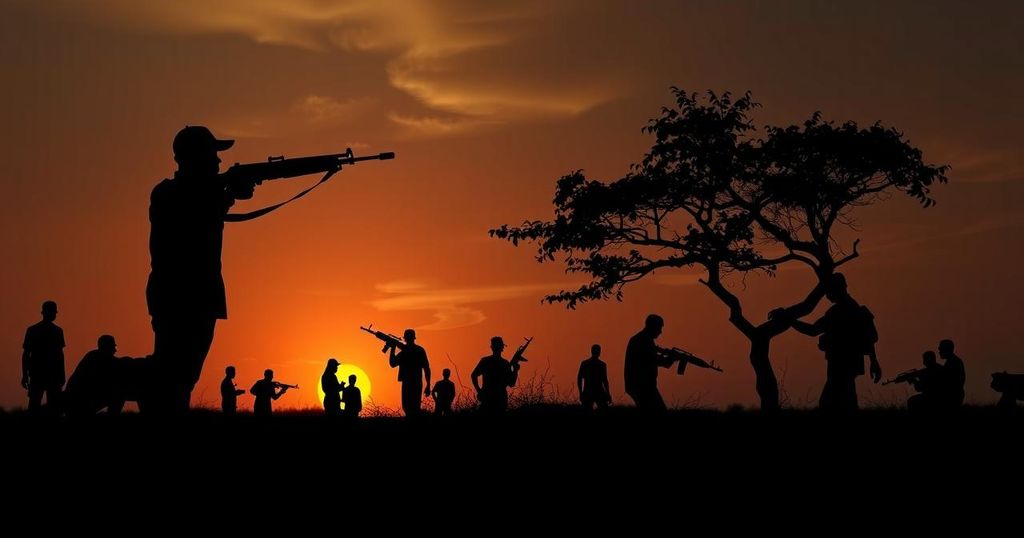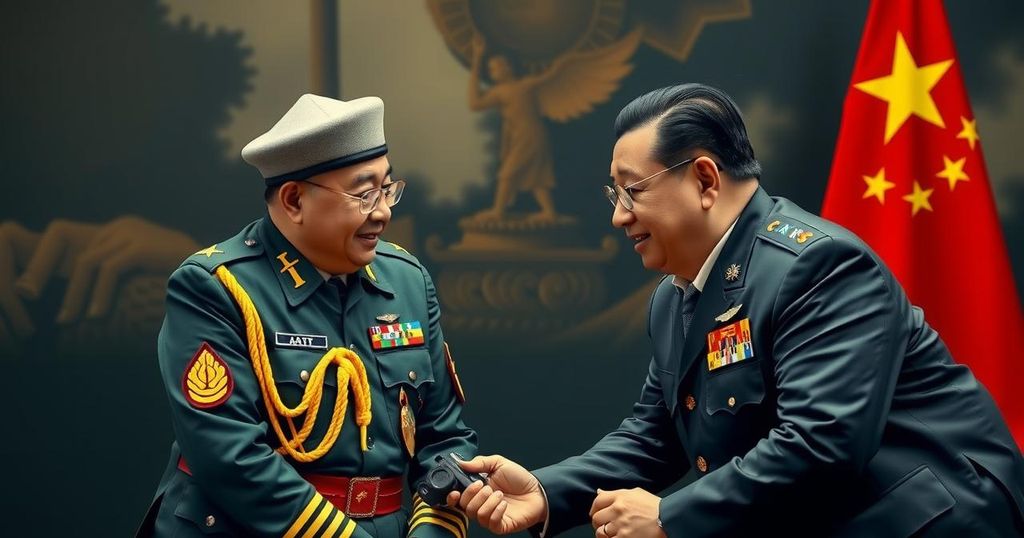UN Warns Sudan at Catastrophic Breaking Point as Ceasefire Talks Commence
Summary
Sudan’s civil war, now in its 16th month, is creating a severe humanitarian crisis, with the UN warning of a possible catastrophic outcome without global intervention. Ceasefire talks have begun in Switzerland, but the absence of the Sudanese army raises concerns about their effectiveness. Over 10 million people have been displaced, facing dire conditions exacerbated by violence and logistical impediments to humanitarian aid.
The ongoing civil war in Sudan, now entering its 16th month, continues to escalate into one of the world’s largest humanitarian crises. As ceasefire talks convene in Switzerland, the absence of the Sudanese military casts doubt on the prospects for meaningful progress. The United Nations has alerted the international community that Sudan is at a “catastrophic breaking point,” warning that without immediate intervention, tens of thousands may face preventable deaths due to hunger, disease, floods, and violence. The negotiations involve international stakeholders, including the U.S. special envoy for Sudan, Tom Perriello, who indicated that effective mediation cannot occur without the military’s engagement. The talks feature consultations from Egypt, the UAE, the UN, and others, focusing on strategies to cease hostilities and facilitate humanitarian aid. Notably, the paramilitary Rapid Support Forces (RSF) are present at the discussions, though it remains unclear if they are genuinely committed to reconciliation. The absence of the Sudanese army is attributed to unmet commitments from prior U.S. and Saudi-brokered agreements aimed at removing combatants from civilian zones and allowing humanitarian access. Sudanese armed forces chief, Abdel Fattah al-Burhan, emphasized that military actions cannot cease until all militia forces are expelled from urban areas. The war erupted following disputes over transitioning to democratic governance after a coup in 2019 led to the ousting of former leader Omar al-Bashir, who was instrumental in inciting previous conflicts. To date, it is estimated that 10 million individuals, or 20% of Sudan’s population, have been forcibly displaced, with over 2.2 million fleeing to neighboring nations. The humanitarian situation is dire, exacerbated by seasonal rains, which have compounded the devastation of homes, creating risks for waterborne diseases like cholera. Aid agencies have faced significant obstacles in providing assistance, citing both the army obstructing aid delivery and the RSF looting humanitarian resources. The internal displacement crisis is further complicated by reports of widespread sexual violence against women and girls, attributed to the RSF’s actions in urban settings. Despite efforts from local volunteers to alleviate the suffering of displaced populations, these individuals often operate under trepidation and inadequacy in resources. The situation necessitates a robust international response to avert further deterioration as the humanitarian crisis escalates. Given the complex series of events leading to the current impasse, understanding Sudan’s historical context reveals the intertwined nature of its rampant violence and political instability. The ongoing conflict, initially rooted in longstanding grievances and exacerbated by mismanagement, has left the civilian populace fracturing under the weight of war, burgeoning famine, and unyielding violence, necessitating urgent global intervention.
Sudan’s civil war, a product of deep-rooted political strife and historical grievances, has led to catastrophic humanitarian outcomes affecting millions. Following the ousting of Omar al-Bashir in 2019, during which mass protests sought democracy, the situation deteriorated as a military coup reinstated control and led to further conflict between the military and paramilitary forces. This backdrop is essential to understand how Sudan has devolved into a state of emergency, prompting mass displacement and escalating humanitarian demands, amid warnings from the UN of an impending catastrophe.
In summary, the civil war in Sudan has reached a pivotal and alarming stage, with the UN declaring it is at a ‘catastrophic breaking point.’ The negotiations taking place in Switzerland, while crucial, face challenges due to the non-participation of key military players. The historical context of the ongoing conflict sheds light on the complexities that have led to the current state of humanitarian crisis and mass displacement. The international community’s prompt and effective response is essential in addressing the dire circumstances faced by millions of Sudanese citizens.
Original Source: www.cbc.ca







Post Comment